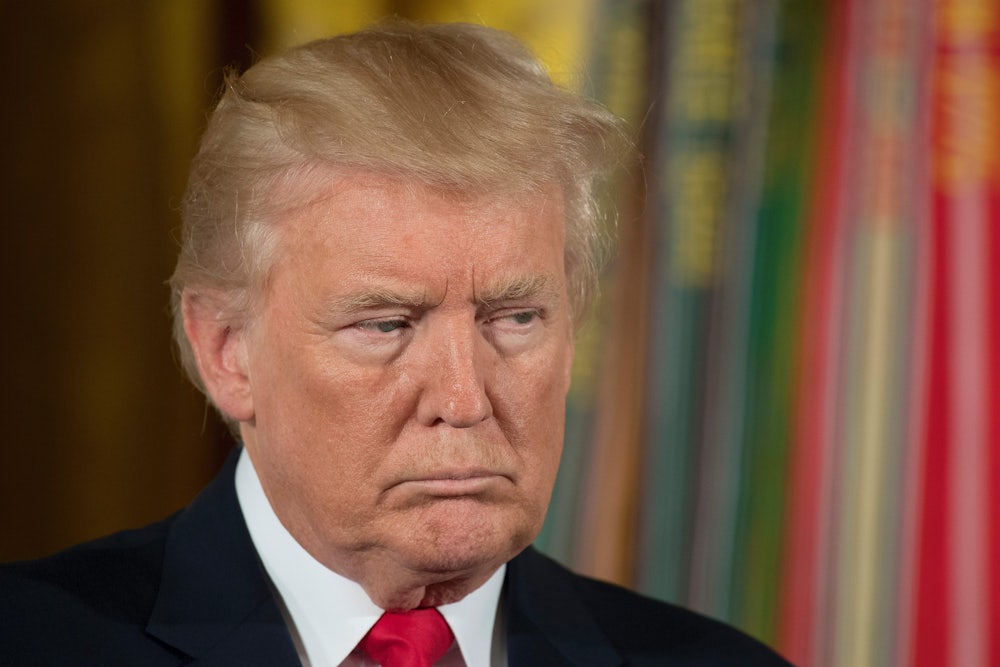In the wake of Trumpcare’s spectacular failure, the Trump administration has sent conflicting signals as to where it will go next. The president has insisted repeatedly that Republicans not give up on repealing and replacing Obamacare, and has threatened to let the individual exchanges, which are on shaky ground, implode. But others have suggested that it may be time to move on. On Monday, speaking with Tim Phillips of the Koch-backed Americans For Prosperity, Treasury Secretary Steven Mnuchin insisted that tax reform will pass. “This is a pass/fail exercise, and we will pass tax reform,” Mnuchin said. Phillips told him that Americans for Prosperity—and, one assumes by extension, the Kochs—had the administration’s back: “We’re going all in,” he said.
Trump has yet to sign a major piece of legislation and there’s growing pressure for him to do so. But tax reform won’t be a cake walk—in fact, it faces many of the same hurdles that health care reform did, and some new ones as well. For starters, there’s the fact that Congress is only in session for 12 days before we hit another “fiscal cliff” on September 29. “Congress’s most immediate concern ... is the debt ceiling,” The Washington Post reported earlier this week. “Failing to raise the ceiling could spark a global financial crisis, leading to a stock market crash, a spike in interest rates, and a potential economic recession.” If Republicans make big demands—most notably cuts in entitlements or other federal spending—this could be a real crisis. Meanwhile, Trump has also threatened not to sign anything until Obamacare is repealed, effectively taking Congress hostage.
Unless the Republican Senators are total quitters, Repeal & Replace is not dead! Demand another vote before voting on any other bill!
— Donald J. Trump (@realDonaldTrump) July 29, 2017
The president, of course, has little truck in the Senate at the moment—but the level of distrust only makes a tax reform deal before 2018 more unlikely.
If Mitch McConnell once again decides to pass legislation without Democratic help, he can only lose three Republican senators. While tax reform may be easier to swallow than cutting millions from their health care plans, the objections to the bill that Republican leadership is likely to put forward will be similar to the objections to its odious health care bill. Republican tax reform will, like health care reform, effectively be a massive transfer of wealth upward. President Trump likes to brag about how well the stock market is doing, but the fact that corporations are doing exceedingly well at the moment hardly bolsters the need to lower their tax rates. Given the vast difference in priorities, a bipartisan tax deal is highly unlikely—nevertheless, Republicans aren’t speaking to Democrats about tax reform at this time.
The president wants a win and fast, but that increasingly looks like it won’t happen before 2018—when skittish Republicans will be heading into a crucial election.
